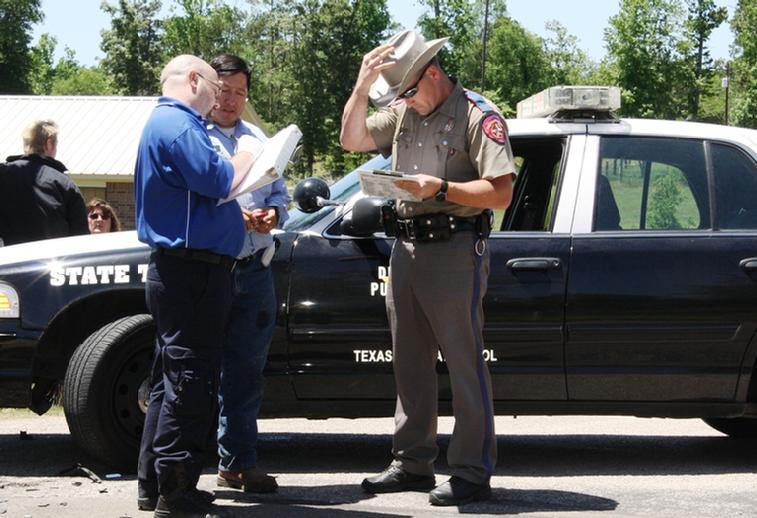Lawmakers Question DPS Director on Race Reporting

*Strange, isn’t it, to profile a Latino for a traffic stop then classify that profiled Latino as white. See, if you’re going to classify them as white, then treat them as white. But that would defeat the purpose, wouldn’t it.
Texas Department of Public Safety Director Steve McCraw says his troopers are required by law to document the race and ethnicity of drivers stopped, and that the troopers use current national databases to make the designation. But it can’t be as easy as blaming the computer. McCraw says they’ll have to ask and input the information manually.
It’s a start. VL
 By Johnathan Silver, The Texas Tribune
By Johnathan Silver, The Texas Tribune
State troopers can end inaccurate reporting of the race and ethnicity of drivers they pull over by simply asking them for that information, Texas Department of Public Safety Director Steve McCraw told lawmakers Wednesday.
After a KXAN-TV investigation earlier this month found that troopers over the past five years have misidentified thousands of minorities stopped as white — possibly skewing racial profiling data that already shows minorities being pulled over in greater proportions — McCraw and other witnesses testified on the issue Wednesday before the House County Affairs Committee.
Texas DPS is required by law to document the race and ethnicity of drivers stopped, and troopers currently base their reporting on information from driver’s licenses and national databases. However, McCraw told the panel, those sources frequently misidentify minorities — Hispanics in particular — as “white” or “other.”
“The driver’s license data itself is problematic,” the director said.
McCraw suggested the agency take a step back and fix the issue manually by asking for the race and ethnicity of drivers they stop and then asking drivers to review their demographic information for accuracy before signing a promise-to-appear note.
How databases classify drivers is out of his agency’s hands, so the cost and time frame for corrections to systems are unclear, he said.
The panel’s questioning of McCraw also spilled over into issues of racial profiling. Committee Chairman Garnet Coleman, D-Houston, noted that if minorities are being misidentified as another race and are more likely to be stopped, that means the number of Hispanics stopped is actually understated.
McCraw countered that a breakdown of stops by race and ethnicity shows they are in line with Texas changing demographics — including a growing Hispanic population — and said his agency does not stand for racial profiling.
“The bottom line is, it’s against the law,” McCraw said.
Representatives from the League of United Latin American Citizens (LULAC) testified that inaccurate reporting of race and ethnicity and options such as Mexican American not being available skews data on racial profiling, which is an issue in the Rio Grande Valley. LULAC state director Elia Mendoza said she has put pressure on McCraw to address stops in the region and said she won’t let up.
“I wanna see some results,” she said.
The committee also addressed the new inmate intake form all county jails will use by Dec. 1. State Reps. Stuart Spitzer, R-Kaufman, and Leighton Schubert, R-Caldwell, said smaller jails risk not having the resources to address the mental health concerns of inmates especially if the need increases.
This article was originally published in The Texas Tribune.
[Photo courtesy of Polk County Today]

